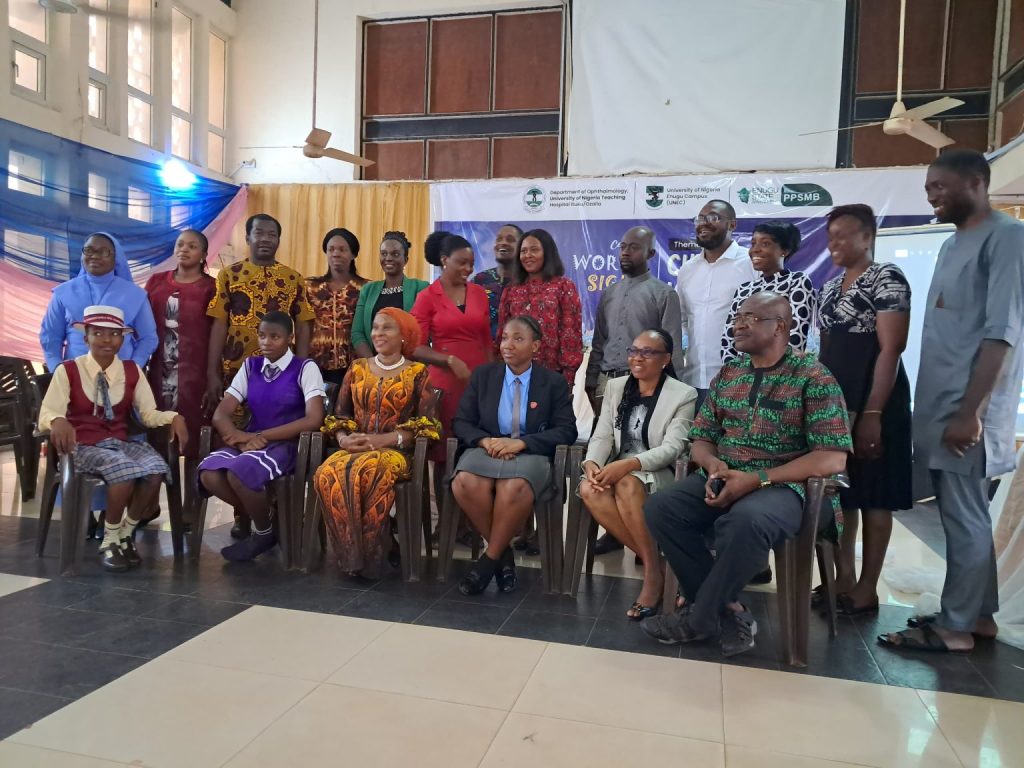CurrentReport Blog As World Sight Day was celebrated on Thursday, October 10, 2024, ophthalmologists across the globe emphasized the importance of early detection and treatment of eye issues, particularly in children. Leading the call was Professor Ifeoma Ezegwui, a professor of Ophthalmology at the College of Medicine, University of Nigeria, who urged parents to seek prompt eye examinations for their children at the first signs of vision problems.
Themed “Love Your Eyes, Children,” this year’s event was held at the University of Nigeria, Enugu Campus (UNEC) and organized by the Department of Ophthalmology at the University of Nigeria Teaching Hospital (UNTH), Ituku-Ozalla.
Professor Ezegwui highlighted that many cases of childhood visual impairment result from a lack of awareness, ignorance about eye care, or the stigma attached to wearing corrective glasses. She stressed that early detection could prevent serious conditions like blindness and emphasized that parents should monitor their children’s vision closely.
“Mothers can often detect vision problems early,” she said. “For instance, if a child is not making direct eye contact while breastfeeding or does not respond with a social smile by three months, it could be a sign of an issue.”
Ezegwui reminded attendees that World Sight Day, observed every second Thursday in October, is dedicated to raising awareness about preventable eye diseases and the need for early intervention to safeguard vision.
In her remarks, Professor Ada Aghaji, Head of the Department of Ophthalmology at the University of Nigeria/College of Medicine, underscored the significance of this year’s focus on children. The department organized a secondary school quiz competition to educate students on the importance of eye health and care. Aghaji explained that eye conditions like cataracts, glaucoma, and refractive errors, which are common causes of blindness, can be easily treated if detected early. Cataract surgery, for instance, is one of the most cost-effective procedures globally, yet many in developing countries remain blind due to limited access to care.
She also addressed the stigma associated with wearing glasses, particularly among children, which can prevent them from receiving the corrective treatment they need. “Even when children have access to eye care and are prescribed spectacles, the fear of being teased often stops them from wearing glasses,” she noted.
The World Sight Day event concluded with a quiz competition involving students from eight secondary schools in Enugu. The quiz tested the students’ knowledge of eye health and the functions of the eye, aiming to raise awareness and reduce the stigma surrounding corrective eyewear.
Through these initiatives, ophthalmologists hope to encourage early eye care and break down misconceptions about wearing glasses, ensuring a future where fewer children suffer from preventable visual impairments.












